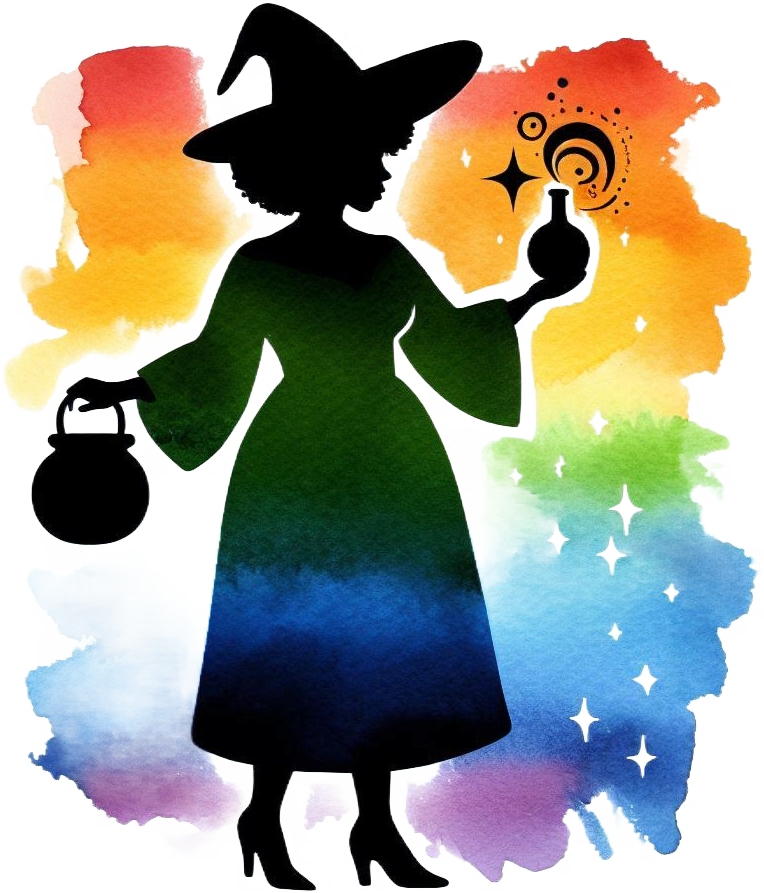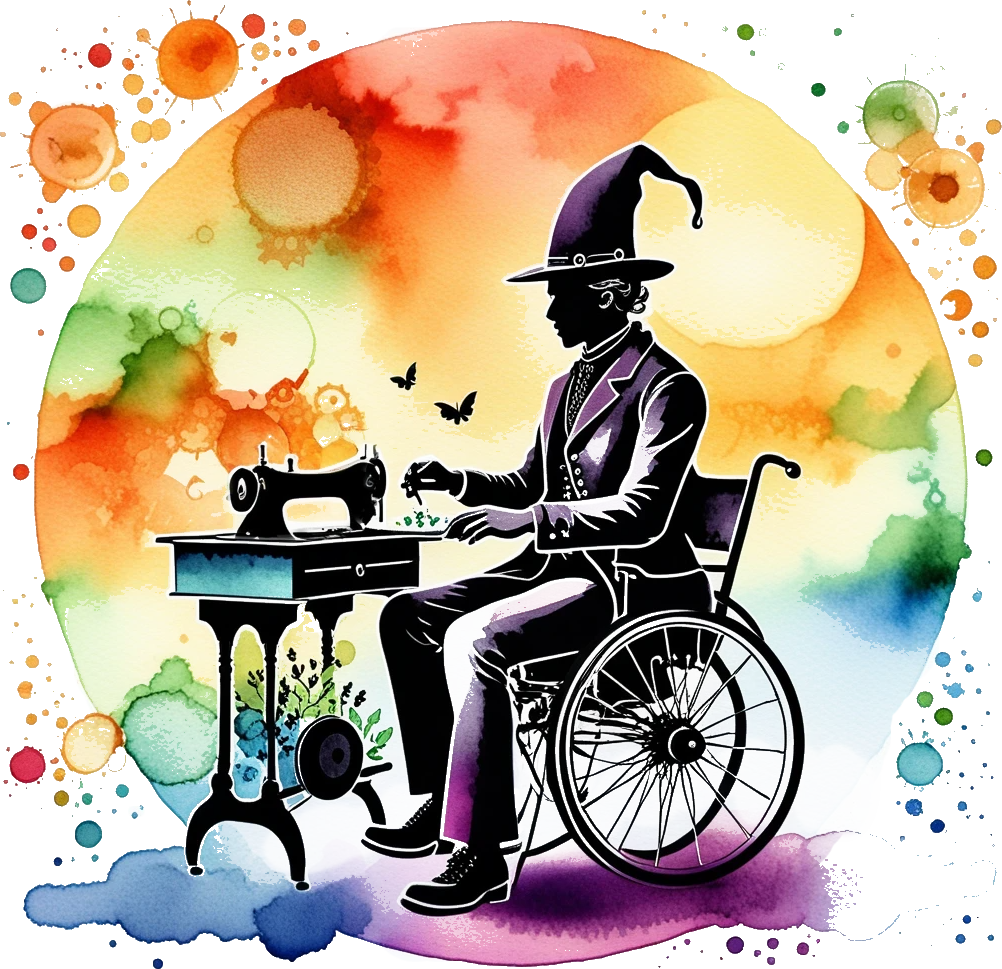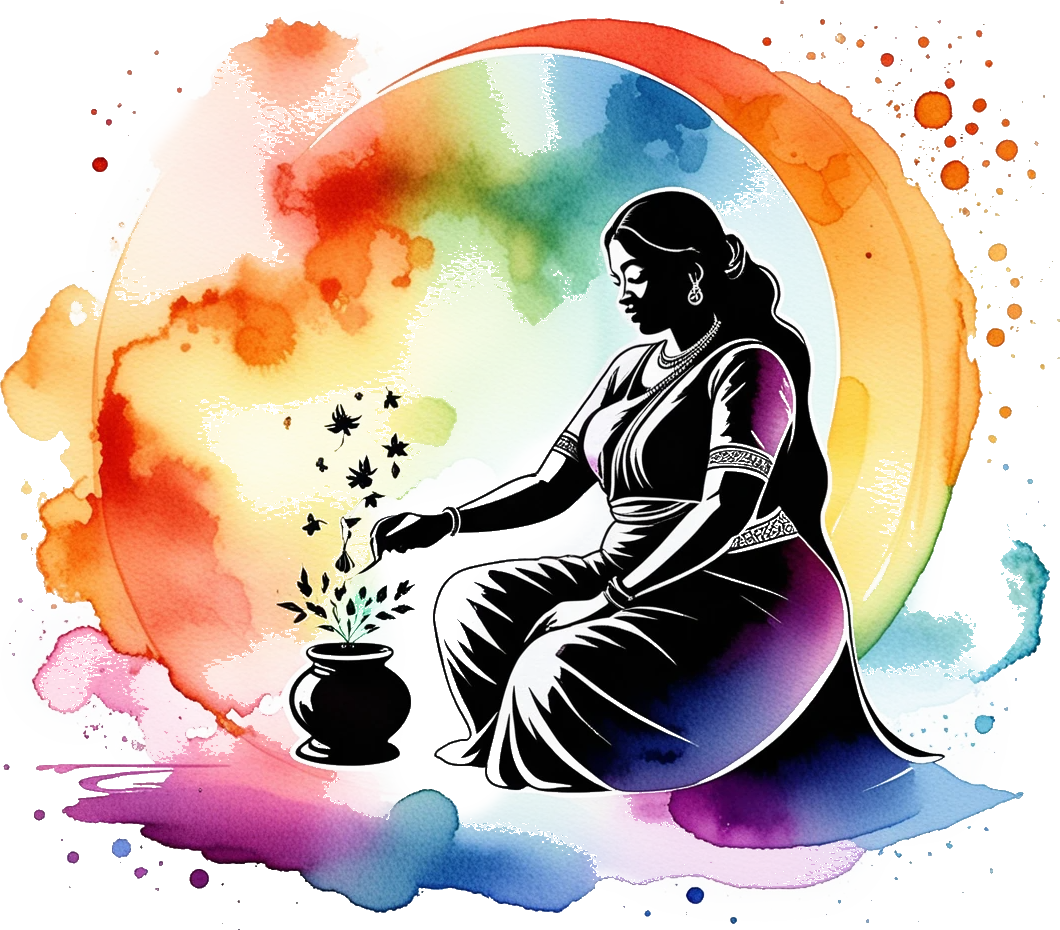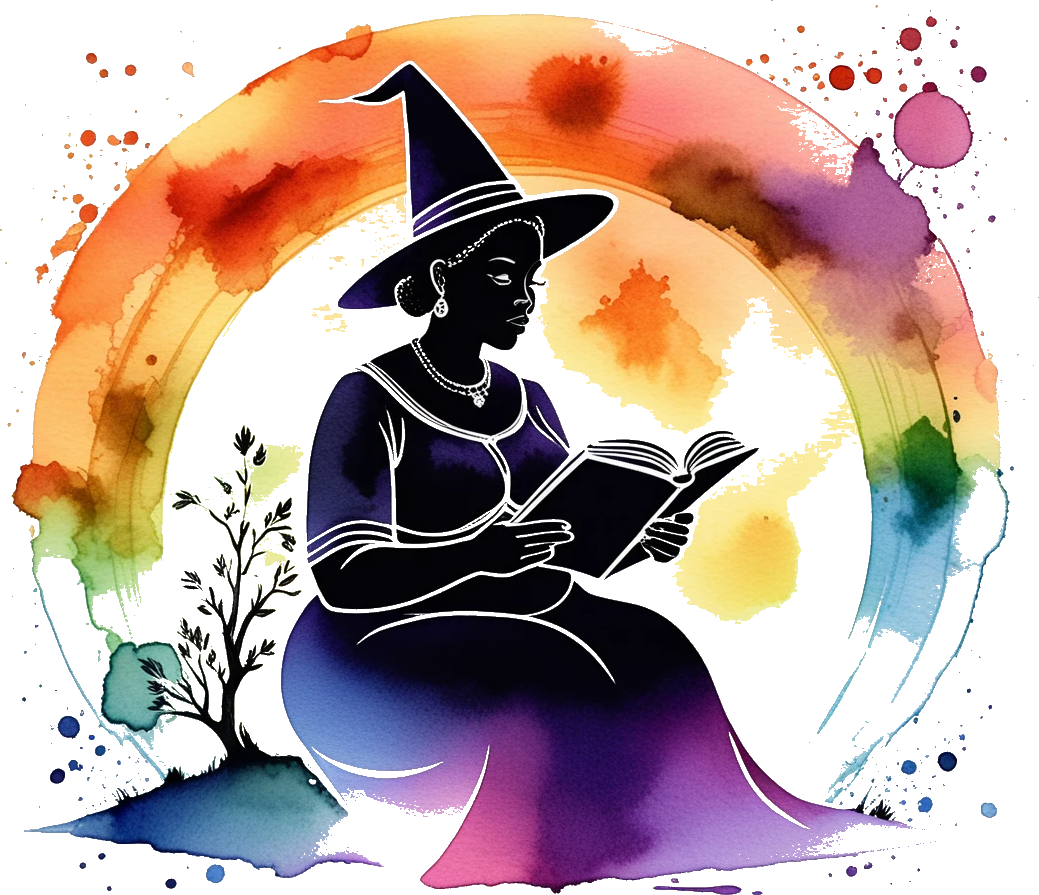
Most of the material out there about witchcraft, especially for beginners, is all about telling you what to do. Sometimes, there's some stuff about when and where. If that's working for you, awesome, keep doing it. But if you're looking for something more, this space is about asking and answering some of the other big W questions about witchcraft. Like who and why.
Who is this even for, anyway? This is for seekers, new witches, the witchcraft-curious, people starting a new path or tradition, solo practitioners, or experienced practitioners who want to recapture their spiritual connection with the craft.
Ok, I'm into this witchcraft stuff. But it seems like this place has a lot of yoga and Hindu stuff, and that's not witchcraft.
What's up with that?
Actually, it is totally part of witchcraft as we know and practise it today. A huge number of the beliefs that come from the New Age branch of historical influences originally come from Hinduism. The New Age scene was a direct descendant of the Spiritualist movement, the craze that included figures like Madame Blavatsky and the Theosophists. Recall how writers of that era were inspired by Eastern wisdom and all that ancient knowledge, which was often just repackaged philosophy with the serial numbers filed off?
There is more to Eastern thought than Buddhism. In fact, Hinduism predates Buddhism by centuries. Some within the Hindu community even see Buddhism as a form of Hinduism. The Buddha himself was raised as a Hindu. Jainism came into existence around the same time. Sikhism emerged in the 16th century CE, so even it was around to inspire the Westerners who came to the East in search of ancient wisdom and new ways of thinking during the 19th century.

Theosophists, in particular, were responsible for this original act of cultural appropriation from the Dharmic faiths of the eastern world. Under Madame Blavatsky, the Theosophical Society sought to synthesise and spread a single, essential, global religion. They appealed especially to citizens of the British colony of India, offering the idea that their philosophies and beliefs had immense global value. In return, they rewrote those philosophies and beliefs into books meant to appeal to Western audiences. A big part of creating that appeal was whitewashing and handwaving away the origins. This is where the wisdom of the East trope gets cemented, and it is still getting people killed in India.
Reincarnation, universal oneness, spiritual vibrations, grounding, karma, energetic channels (nadis), chakras, a universal god that manifests through all conceptions of the divine, the existence of many divine beings though only some are worshipped by each individual (henotheism), the progression of time through a cycle, the belief that the individual is one with the divine (monism), kundalini, meditation, mindfulness, chanting, the belief that the physical world is an illusion that distracts the soul from the true world of the non-physical and divine, yoga, sound vibrations that can change energetic forces (for example, healing), visualisation, intention, liberation from the cycle of rebirth, transcendence of the self beyond the physical form, the concept of enlightenment itself, all are ideas lifted straight from Hindu scriptures that have made their way into modern witchcraft with little to no acknowledgment of origin. As this document moves through the various concepts and beliefs underlying the practise of witchcraft, those origins will be recognised.
And before someone jumps in with, "But Hinduism is diverse!" Yes, it absolutely is. There are thousands of different traditions, and they do not all agree on who gets to do what. That is exactly why the Theosophists' universal religion project was such a mess.
Hold up, isn't that Buddhist stuff?
The answer is yes and no. Buddhism and Hinduism are closely related. The Buddha grew up as a Hindu of the warrior caste. In modern times, there are sects of Shiva devotees whose beliefs and practices are externally indistinguishable from Buddhist practices. In the early days, Buddhism was seen as an unorthodox sect of Hinduism, much the way that Christians saw Muslims during the development of Islam or the way Catholics might relate their church to a Protestant one.

A very simplistic way to boil down the difference: a Hindu believes that all of existence is part of god, and that the illusion of the physical world distracts us from this divine unity within us. A Buddhist believes that all existence is one, and that the distraction of physical reality keeps us from realizing that all of existence is nothing.
These days, Buddhism is far more appealing in the West. There are no gods to challenge Christian monotheism. In the West, Buddhism is presented as very austere. Hinduism, on the other hand, involves 'idols' of inhuman, armed, and sometimes demonic-looking gods. Hindus chant almost exclusively in Sanskrit, while Western Buddhists often chant in English which has a distinctly less 'speaking in tongues' kind of vibe. To top it off, Buddhism doesn’t have the lingering cultural baggage of the Hare Krishnas, who are often remembered (incorrectly) as a cult.
The International Society for Krishna Consciousness first gained visibility when a lot of kids were leaving home at 18 (or earlier) to live radically different lives than their parents had imagined for them. Suddenly there were political cults, radical cults, sex cults, Satanic cults and a 'Krishna cult.' Some were legitimate cultic groups. The Hare Krishnas weren't (and still aren't).
I find that lots of philosophies that came to Buddhism from Hinduism are usually only traced back as far as their Buddhist practitioners. But these things ebb and flow with time and cultural events. When Vivekananda was the toast of the Western esoteric scene, Hinduism was more influential. In both instances, the two were conflated, along with other religions from eastern regions, as 'Eastern thought' and resold to Westerners with a fat markup. And that’s one way that cultural appropriation works.
so is witchcraft cultural appropriation?
It is complicated. At this point, Hindu and Buddhist cultures are not the only ones that have been appropriated into witchcraft. Many First Nations practices have been swallowed up. Celtic superstitions that could have gotten you beaten as recently as the 1900s. African diaspora religions like Hoodoo and Voodoo (there are others). Jewish mysticism. And of course, the problematic term 'shamanism' and the beliefs that fall under that umbrella.
It's a cop out to throw your hands up at the thought that there has been too much borrowing. Information is more available to us than ever before. If you like a practice that is outside your own culture, do the research. Is it an open or a closed practice?
For example, yoga draws on Hindu beliefs for most of what goes on in your typical yoga class, but Hindus are okay with non-Hindus engaging in these activities and with these beliefs, preferably with respect. That is an open practice. On the other hand, there are various tribes of the First Nations that have a traditional practice of creating and using sweat lodges. In fact, the Lakota Nation has been very clear about their inipi ceremonies. Sweat lodges are not an open practice. Tribal outsiders are fortunate to be invited to attend a sweat, and they are incredibly unlikely to be able to lead sanctioned sweats. It is a huge red flag if a non-First Nations person claims that they can or have led a sweat lodge ceremony. I only say incredibly unlikely because the world is full of infinite possibilities, but it really does not happen.
The reasons for this tight control are cultural, spiritual, and practical. I cannot speak to the spiritual or cultural aspects, but there have been cases where grifters created sweat lodges that killed participants. New age grifter James Arthur Ray spent time in jail related to the deaths of three people in a sweat lodge he managed in 2009. Ray died in early 2025, but his case remains a textbook example of how appropriation can turn deadly.
The burden is on us as outsiders to a cultural practice to listen to Indigenous voices from the culture it belongs to and to educate ourselves to understand the context in which they are speaking. There is no one person from any cultural group who can judge if things are hurtful or not. No one to give permission or forgiveness.

I am personally a big believer in the idea that you can learn who originated a practice, why they do it, what it means, where it is from, and when the practice originated. You can learn if the practice has been used in discrimination, oppression, or genocide. You can learn if a practice is public, open, closed, or something more complex.
But it is not just 'do not steal things' anymore. People are talking about actual relationships with source communities, supporting Indigenous land back movements, and recognising that some of us got into spirituality to escape the mess of the world when we should be helping clean it up. The question is not just 'can I do this practice?' but 'how is my spirituality actually contributing to justice instead of just making me feel better about injustice?'
Then you can decide for yourself if you are appropriating or appreciating. But remember that it is not just a personal ethics question. It is about whether your practice supports or undermines the communities these traditions come from. Sometimes that means building actual relationships instead of just reading about stuff online. If you love something enough to imitate it, do you not love it enough to respect it?



